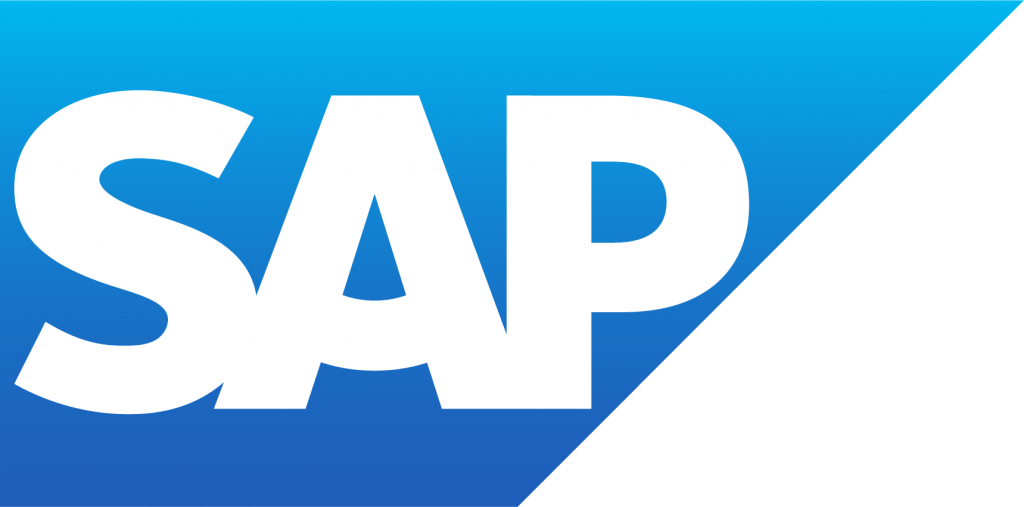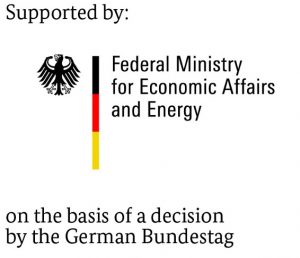Project QCHALLenge, BMWK
Quantum-Classical Hybrid Optimization Algorithms for Logistics and Production Line Management
News
About this Project
The QCHALLenge project solves optimization problems in production and logistics using existing quantum computing (QC) hardware. For this purpose, algorithms, concepts and tools are being developed that enable the industry to use QC in a cross-industry and low-threshold manner.
BASF, BMW, SAP and Siemens represent the user side in the consortium, while LMU contributes its many years of experience in the field of QC software. QCHALLenge thus builds directly on the results of the PlanQK project. Within the scope of two extensive R&D subcontracts, the consortium is complemented by the startup AQARIOS as a focused software and technology partner, which is responsible in particular for the development and implementation of QC solutions, among other things.
QCHALLenge focuses on the domains of production and logistics due to their key role for the German economy. This results in use cases such as optimization of supply chains and warehouses and the use of QC in automation. Implementations are primarily carried out in hybrid form and are designed in such a way that customers quickly benefit from a quantum advantage without having to deal with the technology of QC. The application of the results then takes place by adoption in practical use and by distribution of the developed software tools. Likewise, the customized problem-solving approaches are utilized by the application partners and the knowledge gained in dealing with QC is applied by the technology partners.
QCHALLenge thus enables the establishment of an ecosystem for the economic application of QC and strengthens the technological sovereignty of the German economy.
List of selected publications
- Y. Sun, Z. Wu, Y. Ma and V. Tresp, “Quantum Architecture Search with Unsupervised Representation Learning”, arXiv:2401.11576 [qp], Jan. 2024. DOI:10.48550/arXiv.2401.11576.
- M. Zorn, J. Stein, P. Altmann, M. Kölle, C. Linnhoff-Popien and T. Gabor, “Cohesive Quantum Circuit Layer Construction with Reinforcement Learning”. To appear in the Proceedings of the IEEE International Conference on Quantum Computing and Engineering in Sep. 2024.
- Sun, J. Liu, Z. Wu, Z. Ding, Y. Ma, T. Seidl, V. Tresp, “SA-DQAS: Self-attention Enhanced Differentiable Quantum Architecture Search”, In the Companion Proceedings of the ICML 2024
- Sun, J. Liu, Y. Ma, V. Tresp, “Differentiable Quantum Architecture Search For Job Shop Scheduling Problem”, In the Proceedings of the ICASSP 2024
- M. Kölle, D. Seidl, M. Zorn, P. Altmann, J. Stein and T. Gabor, “Optimizing Variational Quantum Circuits Using Metaheuristic Strategies in Reinforcement Learning”. To appear in the Proceedings of the IEEE International Conference on Quantum Computing and Engineering in Sep. 2024. arXiv:2408.01187.
- J. Stein, J. Blenninger, D. Bucher, J. P. Eder, E. Çetiner, M. Zorn and C. Linnhoff-Popien, “CUAOA: A Novel CUDA-Accelerated Simulation Framework for the QAOA”. To appear in the Proceedings of the IEEE International Conference on Quantum Computing and Engineering in Sep. 2024. arXiv:2407.13012.
- T. Rohe, D. Schuman, J. Nüßlein, L. Sünkel, J. Stein and C. Linnhoff-Popien, “The Questionable Influence of Entanglement in Quantum Optimisation Algorithms”. To appear in the Proceedings of the IEEE International Conference on Quantum Computing and Engineering in Sep. 2024. arXiv:2407.17204.
- A. Awasthi, N. Kraus, F. Krellner, D. Zambrano, „Real World Application of Quantum-Classical Optimization for Production Scheduling”, to appear in the Proceedings of the IEEE QCE 2024
- C. Jones, N. Kraus, P. Bhardwaj, M. Adler, M. Schrödl-Baumann and D. Zambrano Manrique, “Benchmarking Quantum Models for Time-series Forecasting”, to appear in the Proceedings of the IEEE QCE 2024
- J. Stein, N. Roshani, M. Zorn, P. Altmann, M. Kölle and C. Linnhoff-Popien, „Improving Parameter Training for VQEs by Sequential Hamiltonian Assembly“. To appear in the Proceedings of ICAART 2024: The 16th International Conference on Agents and Artificial Intelligence. Rom, February 24 – 26, 2024. arXiv:2312.05552.
- J. Stein, M. Poppel, P. Adamczyk, R. Fabry, Z. Wu, M. Kölle, J. Nüßlein, D. Schuman, P. Altmann, T. Ehmer, V. Narasimhan and C. Linnhoff-Popien, „Benchmarking Quantum Surrogate Models on Scarce and Noisy Data“. To appear in the Proceedings of ICAART 2024: The 16th International Conference on Agents and Artificial Intelligence. Rom, February 24 – 26, 2024. arXiv:2306.05042.
- J. Stein, D. Schuman, M. Benkard, T. Holger, W. Sajko, M. Kölle, J. Nüßlein, L. Sünkel, O. Salomon and C. Linnhoff-Popien, „Exploring Unsupervised Anomaly Detection with Quantum Boltzmann Machines in Fraud Detection“. To appear in the Proceedings of ICAART 2024: The 16th International Conference on Agents and Artificial Intelligence. Rom, February 24 – 26, 2024. arXiv:2306.04998.
- M. Kölle, J. Mauerer, P. Altmann, L. Sünkel, J. Stein and C. Linnhoff-Popien, „Disentangling Quantum and Classical Contributions in Hybrid Quantum Machine Learning Architectures“. To appear in the Proceedings of ICAART 2024: The 16th International Conference on Agents and Artificial Intelligence. Rom, February 24 – 26, 2024. arXiv:2311.05559.
- J. Stein,T. Rohe, F. Nappi, J. Hager, D. Bucher, M. Zorn, M. Kölle, C. Linnhoff-Popien, „Introducing Reduced-Width QNNs, an AI-inspired Ansatz Design Pattern“, arXiv:2306.05047 [qp], November 2023. DOI: 10.48550/arXiv.2306.05047.
- J. Stein, J. Jojo, A. Farea, D. Bucher, P. Altmann, M. S. Çelebi and C. Linnhoff-Popien, „Combining the QAOA and HHL Algorithm to achieve a Substantial Quantum Speedup for the Unit Commitment Problem“, arXiv:2305.08482 [qp], June 2023. DOI: 10.48550/arXiv.2305.08482.
- J. Stein, I. Christ, N. Kraus, M. B. Mansky, R. Müller and C. Linnhof-Popien, „Applying QNLP to sentiment analysis in finance“. QCE23: IEEE International Conference on Quantum Computing and Engineering Companion. Bellevue (Washington), September 17-22, 2023. DOI: 10.1109/QCE57702.2023.10178. arXiv:2307.11788.
- P. Stougiannidis, J. Stein, D. Bucher, S. Zielinski, C. Linnhoff-Popien and S. Feld, “Approximative lookup-tables and arbitrary function rotations for facilitating NISQ-implementations of the HHL and beyond”. QCE23: IEEE International Conference on Quantum Computing and Engineering. Bellevue (Washington), September 17-22, 2023. DOI: 10.1109/QCE57702.2023.00025. arXiv:2306.05024.
- M. B. Mansky, F. Wörle, J. Stein, R. Müller and C. Linnhoff-Popien, “Adapting the DisCoCat framework for Question Answering to the Chinese Language”. QCE23: IEEE International Conference on Quantum Computing and Engineering. Bellevue (Washington), September 17-22, 2023. DOI: 10.1109/QCE57702.2023.00073.
- A. Giovagnoli, Y. Ma, M. Schubert, V. Tresp, “QNEAT: Natural Evolution of Variational Quantum Circuit Architecture”. GECCO 2023: The 2023 Genetic and Evolutionary Computation Conference Companion. Lisbon, July 15-19, 2023. DOI: 10.1145/3583133.3590675. arXiv:2304.06981.
- J. Stein, F. Chamanian, M. Zorn, J. Nüßlein, S. Zielinski, M. Kölle and C. Linnhoff-Popien, “Evidence that PUBO outperforms QUBO when solving continuous optimization problems with the QAOA”. GECCO 2023: The 2023 Genetic and Evolutionary Computation Conference Companion. Lisbon, July 15-19, 2023. DOI: 10.1145/3583133.3596358. arXiv:2305.03390.
- J. Stein, D. Schuman, M. Benkard, T. Holger, W. Sajko, M. Kölle, J. Nüßlein, L. Sünkel, O. Salomon and C. Linnhoff-Popien, “Exploring Unsupervised Anomaly Detection with Quantum Boltzmann Machines in Fraud Detection”. In Proceedings of the International Conference on Agents and Artificial Intelligence – Volume 2, pages 177-185, Feb. 2024. DOI: 10.5220/0012326100003636. arXiv: 2306.04998.
- J. Stein, M. Poppel, P. Adamczyk, R. Fabry, Z. Wu, M. Kölle, J. Nüßlein, D. Schuman, P. Altmann, T. Ehmer, V. Narasimhan and C. Linnhoff-Popien, “Benchmarking Quantum Surrogate Models on Scarce and Noisy Data”. In Proceedings of the International Conference on Agents and Artificial Intelligence – Volume 3, pages 352–359, Feb. 2024. DOI: 10.5220/0012348900003636. arXiv: 2306.05042.
- J. Stein, N. Roshani, M. Zorn, P. Altmann, M. Kölle and C. Linnhoff-Popien, “Improving Parameter Training for VQEs by Sequential Hamiltonian Assembly”. In Proceedings of the International Conference on Agents and Artificial Intelligence – Volume 2, pages 99–109, Feb. 2024. DOI: 10.5220/0012312500003636. arXiv: 2312.05552.
- J. Stein, T. Rohe, F. Nappi, J. Hager, D. Bucher, M. Zorn, M. Kölle and C. Linnhoff-Popien, “Introducing Reduced-Width QNNs, an AI-inspired Ansatz Design Pattern”. In Proceedings of the International Conference on Agents and Artificial Intelligence – Volume 3, pages 1127–1134, Feb. 2024. DOI: 10.5220/0012449800003636. arXiv: 2306.05047.
- M. Kölle, A. Giovagnoli, J. Stein, M. B. Mansky, J. Hager, T. Rohe, R. Müller and C. Linnhoff-Popien, “Weight Re-Mapping for Variational Quantum Algorithms”. Agents and Artificial Intelligence (LNCS volume 14546, LNAI), pages 286-309, Mar. 2024. DOI: 10.1007/978-3-031-55326-4_14. arXiv: 2306.05776.
The Consortium

The LMU acts as consortium leader in the project and is responsible for a large part of the project management. As a research institution with many years of expertise in quantum computing (e.g., LMU is a founding partner of PlanQK), LMU provides support in all research-intensive work packages. As a university research group, the QAR-Lab of the LMU plans to apply the project results in the context of teaching, in scientific publications and in funding and research projects based on QCHALLenge.
SAP, as a leading provider of business application software, represents on the one hand the user side regarding optimization problems from business and industry and on the other hand provides its expertise in the field of design, architecture, and development of software for large industrial customers. In this role, SAP also leads work packages in which use cases from the areas of optimization, ML & simulation, as well as materials research are implemented using a hybrid approach (quantum-classical algorithms) and then compared with purely classical methods. Different implementations are evaluated with respect to their performance, scalability, extensibility, etc., coordinated with each other, and then incorporated into the design of an optimal software architecture.
The focus of Siemens‘ work in the QCHALLenge project is on integrating quantum computing (QC) methods into existing automation solutions as seamlessly as possible. This integration concerns different phases in the life cycle of an automation solution, e.g. the configuration of an optimization problem within an automation, the interfaces between automation solution and QC software or reconfiguration and software updates. Appropriate concepts and tools will be developed for this purpose in the project’s work complexes. In the medium to long term, the aim is to commercialize the concepts and solutions as part of Siemens’ automation portfolio.
BASF is participating in the joint project QCHALLenge as an industrial partner and has the role and perspective of an end user of quantum computing in business, in this case, of the chemical industry. BASF already uses mathematical optimization together with machine learning in ongoing business operations in R&D, product development, process development, production and logistics. Continuously finding more efficient solutions to these optimization tasks not only makes sense for BASF from an economic perspective, but also corresponds to the overarching values of resource savings and sustainability. The overall goal of BASF’s subproject within QCHALLenge correlates with this strategy: The project aims to develop a qualitative assessment of the business impact of quantum computing for industry.
BWM also participates in the joint project QCHALLenge as an industrial partner and brings the insights of an end user of quantum computing in the economy to the consortium. As a major company in the automotive industry, BMW is confronted with various optimization tasks in the areas of production and logistics during ongoing business operations. Continuously finding more efficient solutions to these optimization tasks not only makes sense for BMW from an economic perspective, but also corresponds to the overarching values of resource conservation and sustainability.
As a subcontractor for LMU and BASF, AQARIOS contributes its QC know-how and knowledge from current customer projects with DAX corporations. The main focus is the development of QC software tools. The goal is to enable the low-threshold use of QC in an industrial environment; by generalizing QC solution approaches for problems from production and logistics as well as defining and implementing suitable interfaces for industrial use, QC software tools that can be used in industry are to be created.
Contact
Please direct inquiries to the consortium to:
E-Mail: qar-lab@mobile.ifi.lmu.de
Phone: +49 89 2180-9153
QAR-Lab – Quantum Applications and Research Laboratory
Ludwig-Maximilians-Universität München
Oettingenstraße 67
80538 München

Copyright © QCHALLenge | 2025

